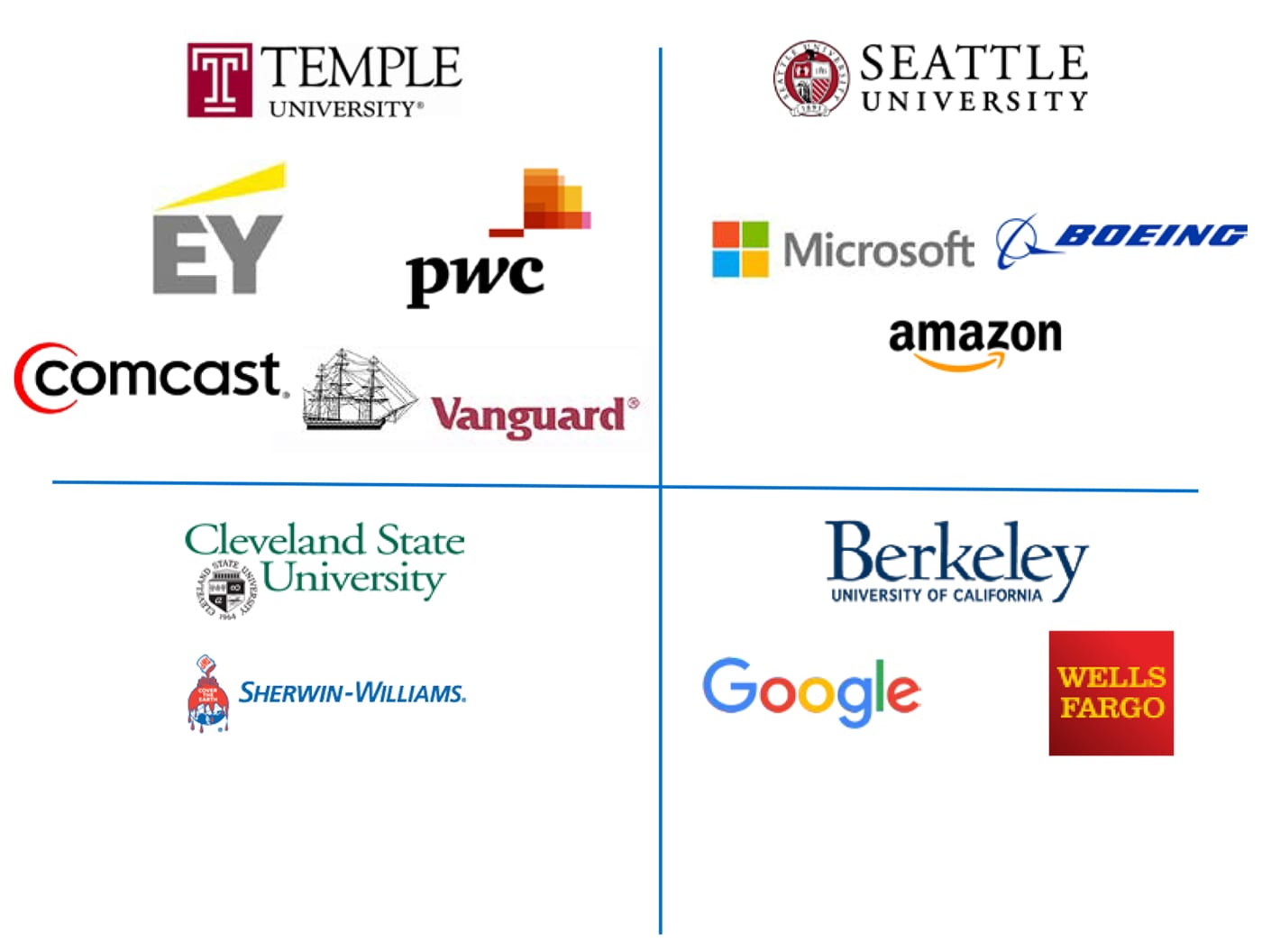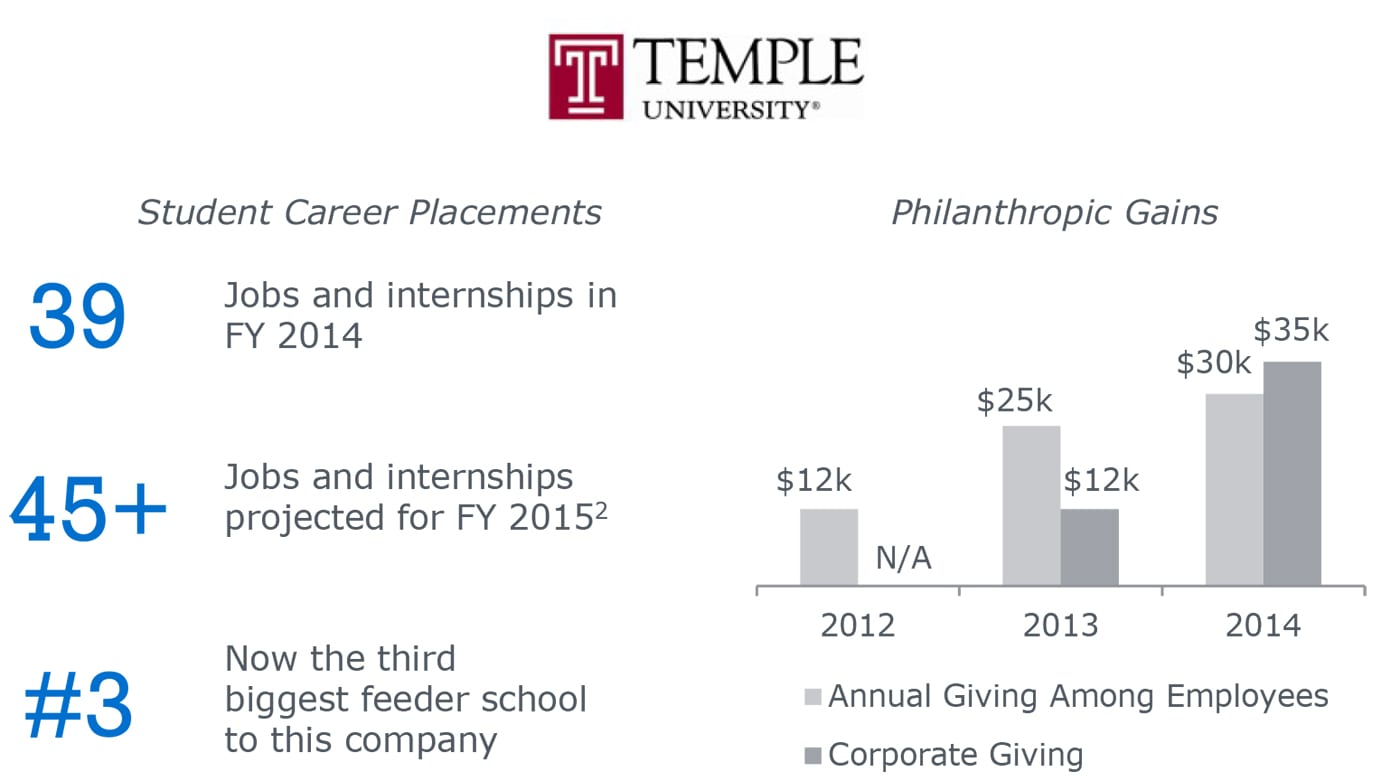How to facilitate alumni engagement in the workplace
Professional development and career networking are two of the most prominent themes in alumni engagement programming today. And yet the workplace remains a largely untapped channel to cultivate donors and leaders.
In the last five years, progressive institutions have started to facilitate alumni engagement through the workplace. By creating corporate chapters—groups or clubs that host events (often social, service, mentorship, and professional development in nature) for alumni who work at the same company—alumni relations teams have found a model that cultivates donors, volunteers, and leaders, benefits multiple departments across campus, and supports wider institutional goals.
The key to success? Create a system where both the institution and the company benefit.
Learn more about corporate chapters and their cross-campus benefits
Find the right partner
Since these partnerships are intended to be mutually beneficial, it’s important to think strategically about which companies make the most sense to collaborate with.
First, identify a small number of potential pilot companies. To create a viable corporate chapter, these companies should have a critical mass of alumni employees. Temple University, for instance, requires a minimum of 75 alumni at a company in order to create a chapter. They also prioritize companies with community impact programs that support volunteering and matching gift programs.
Diverse Institutions Experimenting with Corporate Chapters

Most chapters require an informal structure, and they tend to take on the feel of the company’s overall culture.
Surface and execute win-win activities
Corporate chapters work with university staff members to design customized programming that meets the needs and interests of both its members and of the larger company. By emphasizing this two-way exchange of benefits, all stakeholders can attain their desired goals from the partnership.
One of Temple’s chapters increased annual fund donations by $18,000 in just two years among employees at the parent company. The results of corporate chapters are especially striking considering the limited investment of staff time. At Temple, an associate director spends half their time working with corporate chapters, while an executive director spends three-fourths of their time with them.
A Look at One Chapter’s Results After Two Years

So the benefits Temple received from the corporate chapters were clear—but what did the parent company receive from the partnership? The success of these groups not only improves workforce happiness and engagement, but it also becomes a selling point to prospective employees.
Much like affinity and regional chapters, corporate groups grow steadily on their own as members recruit colleagues. Companies can broker connections between potential members or even prospective employees and corporate chapter members during interviewing (to “sell” candidates on the job by showcasing company culture and community connections) or onboarding (to make new employees feel welcome). In addition, the company also develops a pipeline of potential future employees from the college or university.
Discover the benefits of corporate chapters across campus
While corporate chapters are designed by alumni relations and development staff, their benefits ripple across campus and affect numerous departments. It’s important to coordinate with each stakeholder to ensure that communal and individual goals are achieved. Read our full report, Corporate Chapters: Workplace Programming that Deepens University-Industry Relationships, to learn more. Download the report.
More Blogs

4 steps to strengthen your community college alumni strategy

3 strategies to modernize your advancement approach in 2026
